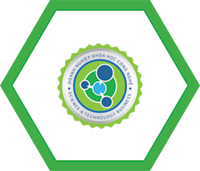Health Care /
Health tips
What your face says about your health
MOUTH AND CHIN
Lines around the mouth: “A primary concern for many women is ageing lines around the mouth, which can be caused by smoking,” beauty and nutritional therapist Jennifer Young says. “The effects can be lessened by regularly applying lip balm.” And quitting smoking, of course.
Sores around the mouth: “Sores in the corner of the mouth may indicate a deficiency of B vitamins,” skin expert and facialist Nataliya Robinson says. “Try introducing more whole grains into your diet, along with green vegetables and meat – all are full of vitamin B. Alternatively, you could try taking a vitamin B supplement.”
Dry lips: “Dry lips show possible internal dehydration, vitamin B deficiency or you could be low in iron intake” Robinson says. “Check with your GP and hydrate your skin by drinking plenty of water.”\
Dry skin/inflammation on the chin: “These are sure signs there’s a problem with the digestive system and bowels,” holistic therapist Annie Day says. “Gently massaging in circles and pinching and releasing the chin can help with constipation.”
FOREHEAD
Horizontal lines on the forehead: “This may indicate digestive issues,” Young says.“They can be combated by drinking warm water mixed with lemon juice first thing every morning.”
A pronounced frown line: “A pronounced line between the eyes shows the liver is under pressure. This could be for physical, environmental and emotional reasons, an allergy to foods/substances or loss and grief,” Day says. “This leads to adrenal overload, known as burnout. Try gently massaging the area with circular moves.”
Pimples on the forehead: “This could indicate internal symptoms, such as problems with the liver and stomach congestion,” Robinson says. “Drink plenty of water to flush out any toxins. You should also eat more liver-friendly foods, such as leafy green vegetables, and cut out processed foods, as well as caffeine.”
EARS AND JAWLINE
Itchy ears: “Itchy ears are often the sign of an allergy or low tolerance,” Day says. “Psoriasis and eczema here are signs that the person is depleted in vitamin D – the sunshine vitamin. [Spending] 10 minutes with the arms and face exposed will give the body vital sunshine and plenty of vitamin D.”
Acne on the jawline: “Acne here may result from eating lots of dairy, sugar and refined foods, such as burgers, chips, crisps and fizzy drinks,” Young says. “Eat more fresh foods and replace fizzy drinks with water to flush out toxins. Ensure the affected areas are cleansed thoroughly.”
Acne around the jawline: “Oestrogen is a friend to our skin, suppressing sebaceous activity, but when levels reduce as women get older, skin lacks lustre and you may experience acne cysts deep in the dermis and commonly found on the jawline and hairline,” dermatologist Dr Howard Murad says. “Try eating apricots, shiitake mushrooms, sweet potatoes, and mangos as they all contain vitamin A to normalise the production and life cycle of skin cells.”
EYES
Dark circles under the eyes: “Dark circles that persist despite regular and restful sleep may be a result of food intolerances,” Young says. “Sufferers should remove dairy and wheat from their diet and see if the circles lighten. Another culprit is alcohol – even in moderate amounts this can cause darkness around the eyes. Try to reduce alcohol consumption.”
Dark circles on the eyes: “This indicates a possible deficiency of inronin the blood,” Robinson says. “Try reducing the amount of stimulating drinks you have, including fizzy drinks, coffee and tea.”
White spots on the eyes: “A series of white spots near the outer rim can indicate a chronic congestion of the lymphatic system,” Robinson says. “You should avoid lactose and cow's milk products.”
Spots on the cheeks: “These can be caused by not cleaning foundation away properly so the skin becomes congested,” Helen Ambrosen, co-founder and product inventor of Lush cosmetics company, says. “This might be from using a water-based cleanser that doesn’t remove makeup fully. Use an oil-based cleanser and take a break from wearing make-up to let the skin breathe.”
SKIN
Small bumps under the skin: “You may be using too strong a product on the skin,” Ambrosen says. “Make sure you’re choosing the right cleanser. A milder one would be more suitable if you suffer from this.”
Dark patches: “These can be caused by medication or illness so be sure to discuss it with your doctor,” Young says. “Age spots, on the other hand, may be the body’s way of ridding itself of toxins. Eat more fresh foods, drink more water and massage a small amount of castor oil on to existing age spots.”
Oily skin: "Oily skin can be caused or worsened by your diet,” Ambrosen says. “Pay attention to your diet. As you get older, your skin produces less sebum. Choose the right cleanser to keep it under control and use a face mask regularly.”
Puffy skin: “The skin may be trying to protect itself from a beauty product that’s too strong for it,” Ambrosen says. “Drink lots of water to help drain the lymph system"
ELSEWHERE ON HEAD
Sore throats and ulcers: If you get these regularly, it could be a sign of a gum infection. Mouth ulcers can indicate a suppressed immune system, so rest and eat well. If it lasts longer than a fortnight, see a GP.
Bad breath: This can indicate liver disease and digestive disorders, but first check teeth and gums are in good health and avoid garlic-heavy meals (chewing parsley can minimise garlic breath).
Dry mouth: This may just mean you’re dehydrated, but if it’s always dry and you don’t smoke or aren’t on medication, it could be a sign of diabetes.
Yellow teeth: Discoloured teeth can be due to drinking too much tea and coffee, or smoking. Some antibiotics can also cause teeth to yellow.
Dull, brittle hair: Treated locks may just need TLC, but brittle hair can mean you’re low in protein. A diet rich in iron and essential fatty acids will also help keep it strong. Limp or rapidly thinning hair can indicate thyroid issues, so see a GP.
(Source: http://www.bodyandsoul.com.au/)




